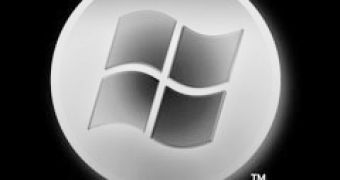The Windows Genuine Advantage crack is done and over with. Simply water under the bridge. 12,000 Windows Vista and Windows XP impacted customers and 20 hours of erroneous invalidations the past weekend's WGA cracks is now complete with a Microsoft apology. The Redmond company revealed at the end of some three-four days worth of investigating that the WGA lapse was generated by a human error. Nothing more and nothing else than the preproduction code being accidentally (!) sent to production servers and managing to impact both Microsoft's activation and validation aspect of the general anti-piracy mechanism. Alex Kochis, Senior Product Manager for Windows Genuine Advantage revealed that the preproduction code was taken down in less than 30 minutes by rolling back all changes introduced, but that its effects ripped through the WGA validation process from August 24 to August 25 incorrectly labeling genuine copies of Vista and XP as pirated.
"For the customers who failed validation from Friday afternoon through Saturday morning the experience was that features we refer to as 'genuine-only' features were disabled. These features are Windows Aero, Windows ReadyBoost, Windows Defender (in this state Defender will scan and identify all threats it would ordinarily, but will only clean ones marked 'severe') and Windows Update (in this state only 'optional' updates are unavailable, all others can still be downloaded, including security updates). Also a desktop message appears in the lower right hand corner of the desktop area. The message reads 'This copy of Windows is not genuine' and the message is persistent until a successful validation is performed and the message goes away," Kochis stated.
But the WGA weekend crack brought to the attention to the false positives the anti-piracy validation mechanism is generating. Microsoft has been mute on the issue of false positives, since WGA was introduced back in 2005. Cori Hartje, director of the Microsoft Genuine Software Initiative revealed at the end of March 2007 a date synonymous with the Genuine Software Initiative's first year anniversary that the WGA program processed in excess of 600 million unique product validations since July 2005. But she failed to reveal the volume of erroneous, non-genuine labels received by legitimate Windows operating systems. And don't think for a second that Microsoft doesn't know. But the company has chosen the more abstract path of downplaying the matter informing that the figure represents only a small, insignificant percentage of the program's performances. A similar approach was given to this weekend's WGA crack. Nick White, Microsoft Product Manager stated initially that the problems affected only a small number of Windows users. He subsequently corrected this statement.
"Among the points that Alex calls out, one is that around 12,000 customers were affected worldwide. While I stated on Saturday that "very few customers" were affected -- a poor choice of words, I will be the first to admit --, this by no means was meant to downplay the experience endured by those customers. As Alex puts it, "one bad customer experience is one too many," and I completely agree. That's the most important point and cannot be overstated. My apologies to anyone who felt slighted by interpreting that MS' stance was less than responsive and empathetic; I can assure you that the team worked non-stop to restore service to affected Genuine users," White stated.
Now, you have to understand that WGA is not a tool designed to police consumers. Microsoft will not go directly after users deploying pirated copies of its software. In fact, the general perspective over at the Redmond company is that Windows pirates are Microsoft customers just as much as genuine users. With the small detail that they still have to acquire legitimate licenses, and in this regard at least potential future client. No, the WGA is focused on the underground economies built on counterfeit software, such as the bootlegged software ring from China's Southern Guangdong taken down in July by the Chinese Public Security Bureau (PSB) and the FBI.

 14 DAY TRIAL //
14 DAY TRIAL //